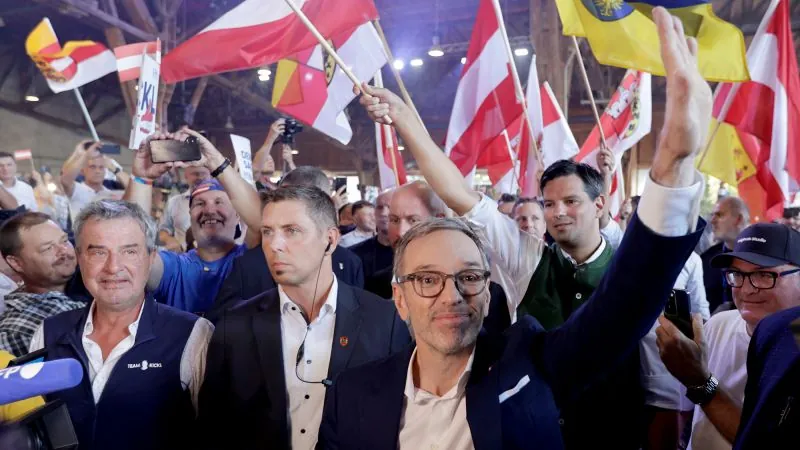
Austrian Far-Right FPÖ Set to Dominate Upcoming Elections: What’s Behind Their Surge?
2024-09-28
The FPÖ: A Historical Overview
The FPÖ, often referred to as the forefather of European far-right parties, has built its brand around anti-immigration, anti-Islam, and Eurosceptic sentiments. Notable for its provocative rhetoric, such as previously using the slogan "homeland love instead of Moroccan thieves", the party has established a firm footing in Austria’s political landscape since its inception in 1956.
Unlike other European far-right movements, the FPÖ boasts a storied past—previously part of several coalition governments and rooted deep within Austria's political fabric. The party came into prominence following its strong showing in the 1999 elections, securing 27% of the vote and entering a coalition with the conservative Austrian People’s Party (ÖVP).
Current Landscape and Leadership
Since taking the helm in 2021, Herbert Kickl has revitalized the party's image, positioning himself as a "Volkskanzler," or "people's chancellor." Kickl’s leadership has stirred controversy, particularly his extreme stances on various issues, including his characterization of government policies towards COVID-19 vaccinations. His hardline approach has resonated with many voters feeling disenfranchised by the political establishment.
Key Policies and Public Sentiment
As the FPÖ prepares for the upcoming election, their campaign addresses pressing voter concerns such as rising living costs, immigration control, climate change, and the ongoing war in Ukraine. With inflation weighing heavily on public opinion, the FPÖ’s pledges include stricter immigration rules, particularly aimed at returning convicted criminals to their countries of origin. The party has also skillfully tapped into concerns surrounding energy dependence on Russia, arguing for Austria's continued use of Russian gas supplies while opposing EU sanctions.
Economically, the FPÖ positions itself as a champion of the working class, advocating for tax breaks and policies that favor low-income earners. This strategy has effectively catered to a demographic increasingly disillusioned with traditional parties, particularly amidst growing economic and social upheaval.
Political Implications and Future Prospects
Current polling indicates a competitive race, with the FPÖ poised for a narrow lead of around 27% ahead of the ÖVP at 25% and the Social Democrats (SPÖ) at 20%. If successful, the FPÖ's most likely coalition partner would be the ÖVP, although Chancellor Karl Nehammer has expressed hesitance to collaborate with Kickl directly.
Political analysts suggest that the FPÖ’s potential governance could provide it with greater influence not just in Austria, but throughout Europe as well. If the party achieves its first-ever leading role in a coalition government, it could significantly legitimize and embolden far-right representation across the continent.
As concerns about immigration, national identity, and economic stability remain at the forefront, the outcome of this election will not only dictate Austria's direction but may also reverberate throughout the European Union, reshaping alliances and the political landscape for years to come. As Austria's citizens prepare to cast their votes, the world watches closely—will the FPÖ cement its status as a formidable power in European politics?



 Brasil (PT)
Brasil (PT)
 Canada (EN)
Canada (EN)
 Chile (ES)
Chile (ES)
 España (ES)
España (ES)
 France (FR)
France (FR)
 Hong Kong (EN)
Hong Kong (EN)
 Italia (IT)
Italia (IT)
 日本 (JA)
日本 (JA)
 Magyarország (HU)
Magyarország (HU)
 Norge (NO)
Norge (NO)
 Polska (PL)
Polska (PL)
 Schweiz (DE)
Schweiz (DE)
 Singapore (EN)
Singapore (EN)
 Sverige (SV)
Sverige (SV)
 Suomi (FI)
Suomi (FI)
 Türkiye (TR)
Türkiye (TR)